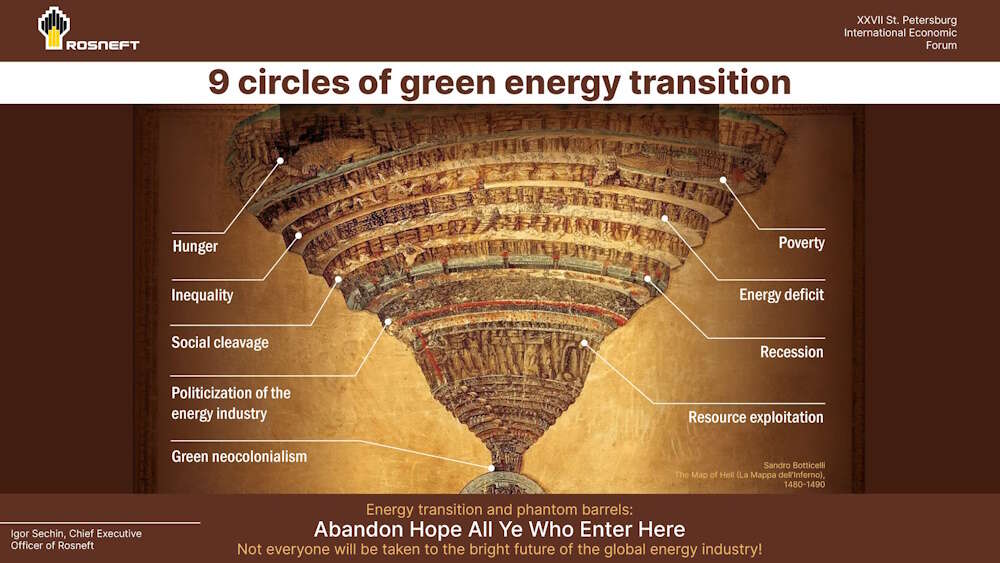Head of Rosneft presented an analysis of the current situation in the energy market, which is experiencing an imbalance.
Igor Sechin paid special attention to the energy transition, which Igor Sechin paid special attention to the energy transition, which, despite the efforts of its adherents, is failing. Huge investments made over the past decades in the development of alternative energy sources have not led to the displacement of fossil fuels from the energy market, and the green transition strategy in its current form cannot ensure the sufficiency, availability and reliability of energy sources.
Head of Rosneft also noted the need to search for new opportunities and ways to develop the global energy sector within the framework of a multipolar world.
In his speech, Igor Sechin recalled the research conducted in 1976 by the future Nobel Prize winner in Physics, Academician Pyotr Kapitsa. Based on basic physical principles, the scientist predicted the possibility of a global energy crisis due to insufficient efficiency of all types of alternative energy.
“As Kapitsa argued, the key characteristic of any type of energy is the density of its energy stream. By this parameter, such fossil fuels as oil (provides 195 W/m2) and gas (482 W/m2) are far ahead of solar energy (6.6 W/m2) and wind energy (1.8 W/m2) that, among other disadvantages, have an uneven or, to put it in more scientific terms, stochastic nature of energy generation,” Igor Sechin said.
Head of Rosneft also said that the statement about the link between emissions and climate change requires an objective assessment, and without it giving priority to the anthropogenic factor in climate change has no grounds.
The Earth’s climatic cycles develop according to the natural laws inherent in any cosmic body and are influenced by such basic factors as the condition of the atmosphere, the activity of the Sun, the distance of the Earth’s orbit from it, the angle of inclination and position of other planets relative to our planet, and many others.
Climatic changes on the planet occur, among other things, as a result of fundamental natural phenomena. A prime example is “super volcanoes”, whose eruption of lava and ash emissions exceed 1,000 cubic kilometers. These disasters can radically change the landscape and provoke sudden cold spells, the so-called “volcanic winters”. For example, the eruption of the Indonesian super volcano Toba that occurred 74 thousand years ago, caused global temperatures to drop between 3.5 and 9 degrees Celsius as a result of the release of more than 2 billion tons of sulfur dioxide into the atmosphere. Comparable eruptions have occurred three times in the Yellowstone Province in the United States, and the last known supervolcanic eruption, Taupo, occurred in New Zealand about 25 thousand years ago.
#energy #climate #energyTransition












